Tech
ChatGPT maker OpenAI confirms Paris and Brussels offices as company set sights on Europe
Published
3 months agoon
By
Ekwutos Blog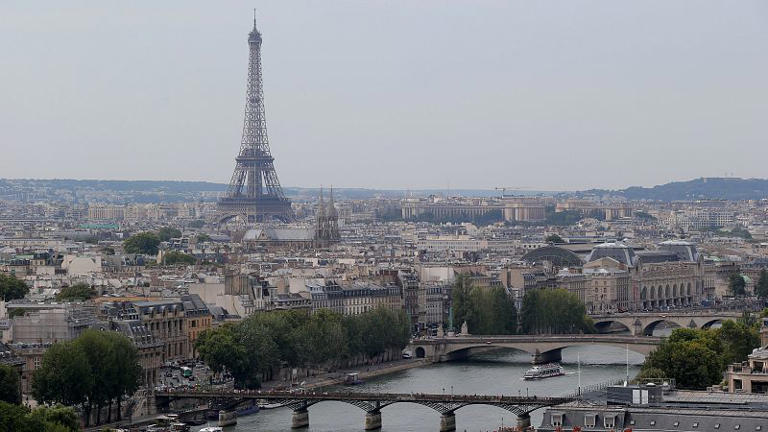
OpenAI confirmed it is opening an office in Paris later this year, following reports last month, as the company tries to establish itself in Europe, the ChatGPT maker told Euronews Next on Wednesday.
The company also said that it will also be opening offices in Brussels, Singapore, New York and Brussels later this year.
The California-based company catapulted onto the technology scene in 2022 with its generative artificial intelligence (genAI) software. The company is reported to be raising $6.5 billion (€5.8 billion) in a funding round that would value OpenAI at over $150 billion (€134 billion).
OpenAI’s presence in France will “enable the company to better collaborate with French developers, companies, and civic organisations, helping more people, businesses, and society realise the benefits of AI,” the company told Euronews Next in a statement.
“France is renowned worldwide for its innovation and leadership in technology and AI,” said OpenAI CEO Sam Altman in the statement.
“We’re excited to open an office in Paris later this year and become part of its thriving ecosystem. With a team here, we can closely partner with French businesses, institutions, and developers to help them realise the benefits of AI,” he added.
OpenAI also announced on Wednesday that it is partnering with the French organisation Simplon, which provides digital skills training and AI literacy programs to under-resourced communities.
The French company will join OpenAI’s academy programme, which OpenAI says aims to democratise access to AI technologies. As part of that programme, OpenAI will provide Simplon with training and technical guidance.
France’s aims of becoming a tech powerhouse
OpenAI opened offices in London and Dublin last year, as the company has made no secret that it seeks to boost its presence in Europe. It has also recently hired several Paris-based recruits such as Julie Lavet, to lead lobbying in Europe.
French President Emmanuel Macron has said he wants Paris to transform “from the City of Light into the City of AI”.
The French government has climbed onto the global AI stage thanks to its initiative to support innovation and start-ups, which the country has been heavily investing in since 2017.
“The opening of OpenAI’s Paris office testifies to the attractiveness of France and the quality of our talent and researchers,” Clara Chappaz, the French secretary of state for artificial intelligence and digital affairs, said in a statement.
“This choice reflects the growing dynamism of our French artificial intelligence ecosystem, which we aim to position as a world leader”.
Mistral AI is one of France’s success stories. The start-up was founded in 2023 by former Meta and Google engineers and has since raised almost €6 billion.
H is another Paris-based AI start-up working on new models and has soared in valuation. Its co-founders previously worked at Google DeepMind.
You may like


Biden sabotages Trump as he bans all future oil and gas drilling


Anti-Graft Commission EFCC Sacks 27 Officers For Fraud, Misconduct


President Bola Ahmed Tinubu will depart Abuja on Monday, January 6, for Accra, the capital of the Republic of Ghana, to attend the inauguration of President-elect John Dramani Mahama on January 7.


President Tinubu Pledges Commitment to the Development of the Anambra Basin


Kenyan woman alleges Cubana Chief Priest denied paternity of her child
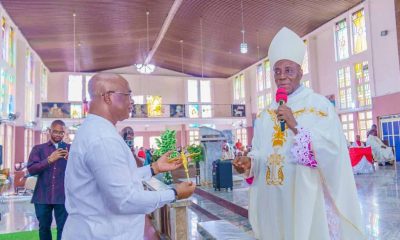

Bishop Ukwuoma, a gentle, humble man of God recognised at home, says Uzodimma
Tech
The wheels of an aircraft continue to spin and move immediately after takeoff.
Published
2 days agoon
January 4, 2025By
Ekwutos Blog
The wheels of an aircraft continue to spin and move immediately after takeoff.
Depending on the diameter of the tires, they may continue to spin between 1,500 and 2,000 rpm.
The captain must stop this rotation before the tires settle into the box, a task that is accomplished by different systems depending on the level.
Here is a brief explanation of how the wheels of an aircraft stop spinning
Most modern aircraft have automatic braking technology and devices to stop the wheels from spinning after takeoff, eliminating the need for pilots to use the brakes, as the automatic braking system works immediately after takeoff.
Passengers can feel the resulting vibration if they are sitting in the front and hear some intermittent noise immediately after takeoff.
Tech
Telcos push 100% tarrif hike, await NCC approval
Published
3 days agoon
January 3, 2025By
Ekwutos Blog
Nigerian telecommunications companies said they proposed a 100 per cent tariff hike to the regulator, the NCC, across voice, data and digital and are awaiting approval.
The proposal, which has been submitted, aims to address rising operational costs, including inflation and increased service delivery expenses.
The disclosure was made by the Chief Executive Officer, MTN Nigeria, Karl Toriola, during an interview on Arise TV on Thursday.
However, the CEO said that it remains uncertain whether the Nigerian Communications Commission will approve the proposal.
According to Toriola, the proposed tariff hike is necessary for the sustainability of the industry, which has been facing significant financial pressures due to rising operational costs.
“We’ve put forward requests of approximately 100 per cent tariff increases to regulators. I doubt they’re going to approve that quantum of increases because they are very, very sensitive to the current economic situation in the country,” Toriola said.
Despite the challenges, Toriola expressed optimism that regulators would make the right decision, taking into account the realities of the sector.
The CEO emphasised that the focus is on ensuring the long-term sustainability of the industry, rather than short-term profitability.
“I believe we’re all on the same side, the policymakers, the regulators, our Chairman of ALTON, Gbenga Adebayo, and the industry. We’re united because we share concerns about a few fundamental issues. First, human rights, are critical to driving any economy. Without a sustainable industry, the broader economy and the well-being of the people will be negatively impacted.”
Tech
Top secret lab is developing the UK’s first quantum clock
Published
3 days agoon
January 3, 2025By
Ekwutos Blog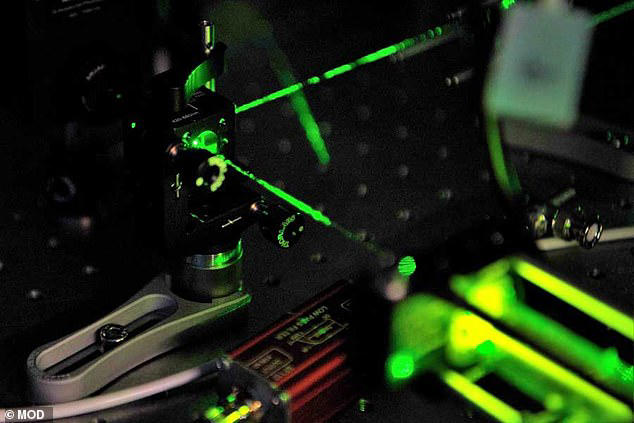
- READ MORE: Google’s quantum chip can perform ‘impossible’ tasks in five mins
A top secret lab is developing a super-precise ‘quantum clock’ that could revolutionize British intelligence.
This super-accurate timekeeping device, to be rolled out by 2029, will allow more precise navigation and surveillance on Royal Navy ships and RAF planes.
It will also ‘enhance the accuracy of advanced weapons’ like guided missiles and give British computer boffins the edge over online adversaries like cyber criminals.
The clock’s precision will be so refined that it will lose less than one second over billions of years, allowing scientists to measure time at an unprecedented scale.
It is the first device of its kind to be built in the UK and will be deployable on military operations in the next five years, according to Defence Science and Technology Laboratory (DSTL).
‘This first trial of advanced atomic clock represents a significant achievement in the UK’s quantum technology capabilities,’ said DSTL chief executive Paul Hollinshead.
‘The data gathered will not only shape future defence effort but is also a signal to industry and academia that we are serious about exploring quantum technologies for secure and resilient operational advantage.’
Quantum clocks use quantum mechanics – the physics of matter and energy at the atomic and subatomic scale – to keep time with unprecedented accuracy by measuring energy fluctuations within atoms.

Developed at the top-secret Defence Science and Technology Laboratory, (Dstl) the quantum clock will improve British intelligence and surveillance by decreasing the reliance on GPS technology, which can be disrupted and blocked by adversaries

To be rolled out by 2029, the quantum clock will allow more precise navigation and surveillance on Royal Navy ships and RAF planes. Pictured, Royal Navy Duke class Type 23 anti-submarine frigate HMS Portland
Quantum clocks are even more accurate that the ‘atomic clocks’, of which there are approximately 400 already in operation around the world.
The UK already has an atomic clock at the National Physical Laboratory in London, but this quantum clock will be the country’s first.
Nick France, CTO of Sectigo, told MailOnline: ‘A quantum clock is a type of atomic clock – essentially a super-accurate timekeeping device.
‘Atomic clocks work by measuring the resonant frequency of atoms, whereas quantum clocks measure very small energy changes (‘quantum fluctuations’) in these atoms, leading to increased accuracy even over super-accurate atomic clocks.
‘Atomic clocks currently are incredibly accurate anyway, but a quantum clock has accuracy levels where only a single second is lost in billions of years of operation.’
The British quantum clock will be ‘the first device of its kind to be built in the UK’, said the UK government in a statement, but it will not be a world first.
Back in 2010, the University of Colorado at Boulder developed a quantum clock with the US National Institute of Standards and Technology.
However, key barriers to deploying quantum clocks are their size – current models come in a van or in a car trailer and are about 1,500 litres in volume.
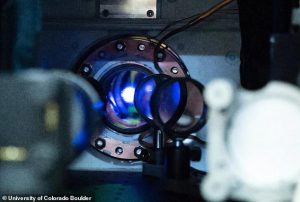
Atomic clocks use certain resonance frequencies of atoms to keep time with extreme accuracy. Pictured, atomic clock at the University of Colorado Boulder in the US
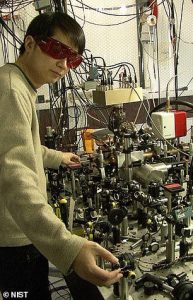
Back in 2010, the University of Colorado at Boulder developed a quantum clock with the US National Institute of Standards and Technology (pictured)
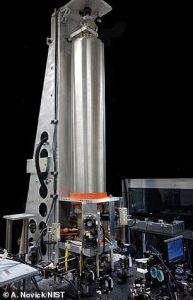
Pictured, NIST-F1, source of the official time of the USA
Potential of quantum clocks
- Enable more precise and independent navigation systems, reducing reliance on GPS satellites, which are vulnerable to jamming or destruction in conflict scenarios.
- Secure communications systems, such as encrypted military networks, which depend on highly synchronised timekeeping.
- Enhance the accuracy of advanced weapon systems, like guided missiles, which rely on accurate timing to calculate trajectories and coordinate attacks.
- Allow Armed Forces to gain an edge over adversaries in timing-critical operations, especially in areas like cyber warfare, where milliseconds can make a difference.
Source: DSTL
Just like most quantum equipment, quantum also have sensitivity to environmental factors such as heat and air molecules, limiting their transport between different places.
‘Quantum clocks are not small like watches or alarm clocks,’ France added.
‘These are devices that in current implementations can be large, even room-sized devices.
‘However, improvements in technology will decrease the size of these devices making them more portable.’
Apart from just ultra-precise timekeeping, quantum clocks could transform global navigation systems by helping satellite communications and aircraft navigation.
According to DSTL, their quantum clock will enable more precise and independent navigation systems, reducing reliance on GPS satellites, which are vulnerable to jamming or destruction in conflict scenarios.
It will improve communications systems, such as encrypted military networks, which depend on highly synchronised timekeeping, as well as boosting the accuracy of advanced weapon systems like guided missiles, which rely on accurate timing to calculate trajectories and coordinate attacks.
What’s more, British Armed Forces will get an edge over adversaries in ‘timing-critical operations’, such as cyber warfare, where milliseconds can make a difference.
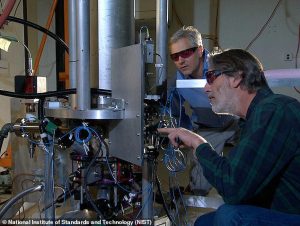
Coordinated Universal Time (UTC) is defined by sophisticated, ultra-precise ‘atomic clocks’ around the world, which tick precisely and continuously. Experts are pictured here with the NIST-F2 atomic clock in the US
Cyber warfare refers to the actions by a nation-state or international organization to attack and attempt to damage another nation’s computers or information networks.
France told MailOnline: ‘Super-accurate timekeeping is important to governments and militaries to enable accurate navigation (using GPS or similar technologies) of planes and ships, but also guidance of weapons systems such as missiles.
‘Equally important to the military as well as civilians is secure communications.
‘Much of the secure communications for governments and the military relies on accurate time sources to function.
‘But equally these accurate clocks are useful for more civilian applications and general internet security, even securing your personal data as it’s transmitted around the internet.’
Companies and governments around the world are keen to cash in on the huge potential benefits that the spooky effects of quantum technology could bring.
Google last month unveiled a new quantum computing chip it said could do in minutes what it would take leading supercomputers 10 septillion years to complete.
Eventually, such a chip could power a ‘commercial’ quantum computer that could be purchased by members of the public and used in labs, offices and even homes.
These ultra-powerful machines, which use the spooky effects of quantum physics, could do everything from speed up AI, solve climate changeand discover lifesaving drugs.
WHAT IS THE ATOMIC CLOCK?
Atomic clocks have a timekeeping mechanism that use the interaction of electromagnetic radiation with the excited states of certain atoms.
The devices are the most accurate system we have for measuring time, with consistent standards applied.
They are the primary standards for international time distribution services, and uses to control wave frequency for TV, GPS and other services.
The principle is founded in atomic physics, measuring the electromagnetic signal that electrons in atoms emit when they change energy levels.
Modern versions cool atoms to near absolute zero by slowing the atoms down with lasers. With temperature of atoms driving their accuracy.
Every few years a ‘leap second’ is added to atomic clocks, by effectively stopping them for a second, to keep them in line with Earth’s rotation speed.

Biden sabotages Trump as he bans all future oil and gas drilling

Anti-Graft Commission EFCC Sacks 27 Officers For Fraud, Misconduct

President Bola Ahmed Tinubu will depart Abuja on Monday, January 6, for Accra, the capital of the Republic of Ghana, to attend the inauguration of President-elect John Dramani Mahama on January 7.
Trending
- Politics11 months ago
Nigerian Senate passes Bill seeking the establishment of the South East Development Commission.

 Business11 months ago
Business11 months agoInflation hits record high of 29.90% on naira weakness

 Politics7 months ago
Politics7 months agoBREAKING: Federal Gov’t Offers To Pay Above N60,000, Reaches Agreement With Labour

 SportsNews10 months ago
SportsNews10 months agoOlympic Qualifiers 2024: CAF Confirms Dates For Super Falcons Vs Banyana Banyana

 Politics10 months ago
Politics10 months agoGovernor Hope Uzodinma’s New Cabinet In Imo: The Gainers, The Losers
- Entertainment11 months ago
American Singer Beyonce makes history as first Black woman to top country chart

 Trending3 months ago
Trending3 months agoNYA demands release of ‘abducted’ Imo chairman, preaches good governance
- Business3 months ago
US court acquits Air Peace boss, slams Mayfield $4000 fine

